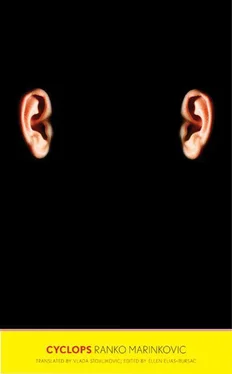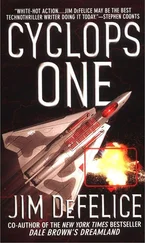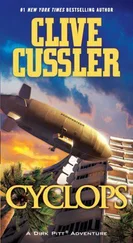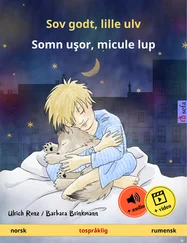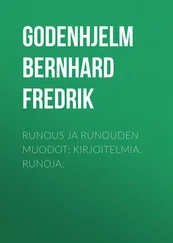“I was going to buy shoes for my boy … Daddy, he said, make them one size too big, I’m growing. The poor little fellow, that he should have to think about such things. And here’s autumn coming, the rains … The child will be off to school soon.”
The scoundrel’s been reading Dostoyevsky, Melkior thought hastily.
“Did you lose much?” somebody asked in a voice moved nearly to tears.
“My wallet with twelve hundred inside. And all my papers.” Then he added, after a well-measured pause, crying out from the bottom of his heart, appealing to all of mankind, “If only he would let me have my ID back! These are serious times.”
It was touching. A woman’s eyes filled with tears. The poor man, his child walking around barefoot and all he wants back is his ID card! Someone hit on the idea of notifying the police. … But Four Eyes didn’t care much for that idea: he opposed it vigorously, going on at very suspicious lengths: “No, no, please! Fair’s fair, we must show some understanding …”
“Listen, you!” spoke up the cyclist all of a sudden, angrily grabbing Four Eyes by the elbow. “Who d’you think you’re kidding? You never had a wallet to begin with. Listen folks, he only showed up here a second ago, right after the bloke from Mexico asked what might be missing from our pockets.”
“Good heavens, me?” Four Eyes rolled his eyes, the very picture of a martyred saint appealing to God to be his witness. “I who have been here all along? Here, this gentleman will tell you whether I’ve been standing behind him or not! Didn’t you accidentally tread on my foot and very politely say you were sorry? Here, look, the footprint’s still there.”
The Mexican was the gentleman who had accidentally trod on his foot. He confirmed it with a nod.
“The footprint’s still there my eye! I’ll give you a footprint across your thieving mug! He only got here a minute ago, and the first thing he did was to ask me if the coppers had been around! As if I didn’t know you, you lush! You’d barter God’s child’s shoes for booze, you would! What will he think of next, the creep!”
“Did you hear him, folks?” moaned the grief-stricken Four Eyes. “As if robbing you blind wasn’t enough, they call you a drunk in the bargain!”
“Clear enough, isn’t it? That’s their method all right,” said the Mexican grimly, terribly disappointed by something in this world. “Tell the truth and they’ll say you’re a drunk; tell a lie and they’ll buy you a drink. Ptui!” he spat out vehemently and began to push his way out of the circle around the weighing machine. “Let me through before I ram someone’s teeth down their throat …” and so saying he gave Melkior another once-over glance.
Melkior’s knees buckled for an instant. The Mexican’s threat had met with approval, and Four Eyes’ unheard-of nerve had found a home with the guardians of the sanctity of private property. Melkior decided it was time he lit out from the circle of these highly honorable men, even at the risk of having them yell “Stop thief!” after him. He stepped down from the weighing machine and tried to elbow through by way of the (so-called) “Mexican’s Passage,” but there was instantly a general mumbling … and a closing of the passage. They meant to have the thief identified (and should there be a brawl as well, so much the better).
This emboldened Four Eyes. The cyclist had failed to shake his reputation. … Impertinently he stepped out in front of Melkior:
“Hey, not so fast, young man! What about my money? Someone’s got to answer for it!”
“You go ahead,” and the cyclist gave Melkior a protective nod. He then let his left hand take charge of the bicycle, putting his right on his hip and facing Four Eyes:
“All right, I’ll answer for it!”
“H-how do you mean … you’ll answer for it?” stammered Four Eyes, his courage evaporating. “I’m only asking that my money be searched for, no offense meant. … We’re only human, aren’t we? No need to get all hot and … But it’s got to be fair!”
Melkior then made a gesture of utterly stupid magnanimity: he took out his wallet with several hundred-dinar notes stacked in it and offered one to Four Eyes.
“Here you are. I’m sure the others will want to give you something, too, but please leave me alone.”
Four Eyes extended a greedy hand for the money, but the cyclist pushed it aside, scarcely bothering to choose the kindest way of doing so.
“Why?” wondered Four Eyes. “You can see the gentleman is willing to give it to me. Is that how to be?” he said with mild reproach and made another try to take hold of the note.
Angered by his manner, the cyclist slapped his outstretched hand and compounded the act by making a fist and pushing it up under his nose.
“Go on, have a sniff,” he said generously, as if offering him an orange, but the other turned his head aside with a grimace of irritation and disgust.
“Queasy, eh? But other people’s money smells nice, is that it?”
“What other people’s? I was robbed …” But this sounded like retreat.
Four Eyes was indeed backing down, defending himself with a muffled mutter of what sounded like curses. Once outside the circle, he heaved a soul-deep sigh of “Oh, the honest man’s burden!” and went away at his habitual businesslike clip.
The audience, too, began to disperse, disappointed.
“Rogues, all of them, I’m telling you, one as bad as the other. It’s anyone’s guess whether he was robbed or not.”
That was the ear-stroking citizen, disgruntled at the matter having been left unsettled.
“He’d have hardly spoken like that if he hadn’t been, would he?”
“Oh come on, it’s only thieves nowadays who shout ‘Stop thief.’”
Only Melkior and the cyclist remained. The blind man was there, too, but he was pottering about his machine, covering it with its oilcloth cover (for the night), and was so intent on it as to be actually absent.
Melkior felt the uneasy accident of his position and said “There” and, a little later, “Thank you” and, in his confusion, buttoned his raincoat up wrong.
“Yes, well,” said the cyclist, ill at ease himself, but then he remembered Four Eyes: “The thieving scoundrel! The shoes old Owl says he wants to buy his boy … when the rotten lush hasn’t got a cat to call his own.”
“Owl?” Melkior voiced his surprise. “But isn’t his name …?”
“Nah! Everybody calls him Owl. God knows what his real name might be. He does the rounds of the bars at night, rolling the drunks, and sleeps in attics by day. The other day he nearly set our bookkeeper’s house on fire. He was playing with matches, some old papers caught fire … the firemen had a job getting him out of the smoke.”
The cyclist was silent for a moment, then shyly asked:
“That other fellow … is he a friend of yours?”
“Yes. Don’t mind his behavior, he was a bit …”
“Mind?” said the cyclist genially. “I like his kind. He made fun of us all and went away singing. He can’t be a bad man.” He then asked in a confidential tone:
“Do you by any chance have any connections with the newspapers?”
“Yes I do. I write for one.”
“Well, uh … what’s the word about us getting into the war?”
“I don’t write anything political … but they say we might …” Melkior shuddered as if they were invoking the devil.
“Well, it wouldn’t surprise me at all if Hitler bit off more than he can chew here in the Balkans! Mark my words!” said the cyclist with fervid conviction. “We may meet again somewhere. You’re an honest man,” he added with a cheery laugh, then mounted his bicycle and, tossing Melkior a “Bye now!” sped off down the street.
Читать дальше
